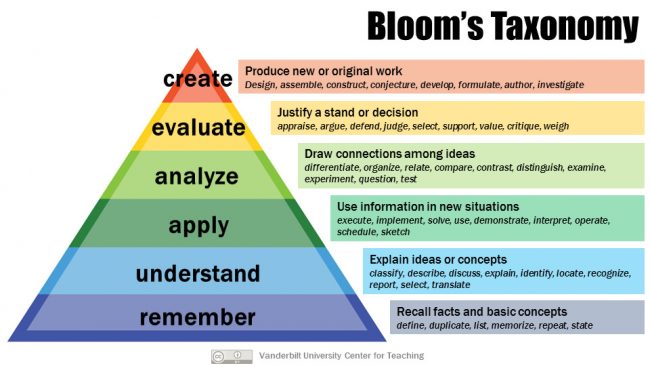Source: Study: students believe they are prepared for the workplace; employers disagree

Category: Learning, Education, & Training
Just Teach My Child The Maths, by James Tanton
Source: Just Teach My Child The Maths, by James Tanton
It is astounding to me that mathematics – of all school subjects – elicits such potent emotional reaction when “reform” is in the air.
…
So … Can we educators work to understand this sentiment, put the right words to it, and fully engage in conversation about it? Can we be fully transparent about our approaches and intents and listen to, honor, learn from, and respond to parental and societal reaction with clarity and grace?Of course we can and of course we must.
We need to communicate the true goal of given exercises to parents.
…
If we are going to ask students to practice mathematics ideas, we need provide interesting or meaningful examples with which to practice them.
…
We need to be sure not to insist on one approach when analyzing a problem. We need to encourage students to generate efficient practices.
…
Work to have students show their work only when there is work worth showing. Let’s honor our students’ intellectual capabilities and time!
…
Make showing/explaining your work interesting.
…
If we truly acknowledge there is a change in mathematics education – as this internet piece purports to demonstrate – then we need to stand by what we value: understanding, flexibility of thought, innovation, problem-solving, reflection on solutions and approaches, and the search for efficiency and elegance.
…
We must acknowledge that testing agencies in most parts of the world have not yet caught up with what we educators value. We must find the means for students to experience tremendous success on all fronts – with speed testing and with deep understanding and mathematical innovation.
What We Talk About When We Talk About Performance | Random ASCII
Source: What We Talk About When We Talk About Performance | Random ASCII, by Bruce Dawson
Describing performance improvements exists at the intersection of mathematics and linguistics. It is quite common to use incorrect math to describe performance improvements, and it is possible to use incorrect, misleading, or just sub-optimal rhetoric to describe your math.
…
It’s quite easy to find examples of this rhetorical error. A google search for “90% faster” (with the quotes) almost exclusively finds articles talking about reductions in elapsed time of 90% or more, where the new process is actually at least 900% faster.
…
Therefore, when you reduce how long a task takes – any task – you should calculate the speedup factor as NewSpeed / OldSpeed and use that speedup to describe your achievement. You should also share your before/after numbers so readers can check your math.
Perspective | Universities are also to blame for the GOP’s ‘grad student tax’
Source: Perspective | Universities are also to blame for the GOP’s ‘grad student tax’, by Sarah Arveson
Charging us tuition, only to waive it, helps to define us as students instead of the essential workers we are.
not making graduate students pay tuition reflects the material reality of graduate school: We do valuable research and teaching labor for the university. It would be preposterous to bill us for this — akin to asking medical residents to pay the hospital for the right to train there.
In the grant application, the professor proposes the budget for the laboratory, including equipment, supplies, and salary and benefits for whoever works in the lab — including graduate student researchers like me. Universities then take a huge amount off the top. Yale, for example, charges the public an additional 67.5 percent “overhead” fee on grants that faculty bring in.
While tuition looks mainly like an artifact of accounting for most graduate students in the humanities and social sciences (where the university just pays itself for tuition), in the natural and applied sciences, tuition is a way for the university administration to get more money out of the public. As the university bulletin explains, “for a standard [research assistant] appointment in addition to the salary, the grant pays half of the tuition.” … Again, this is money that the public pays universities for granting graduate students the privilege of working for them to create more wealth for those same universities.
